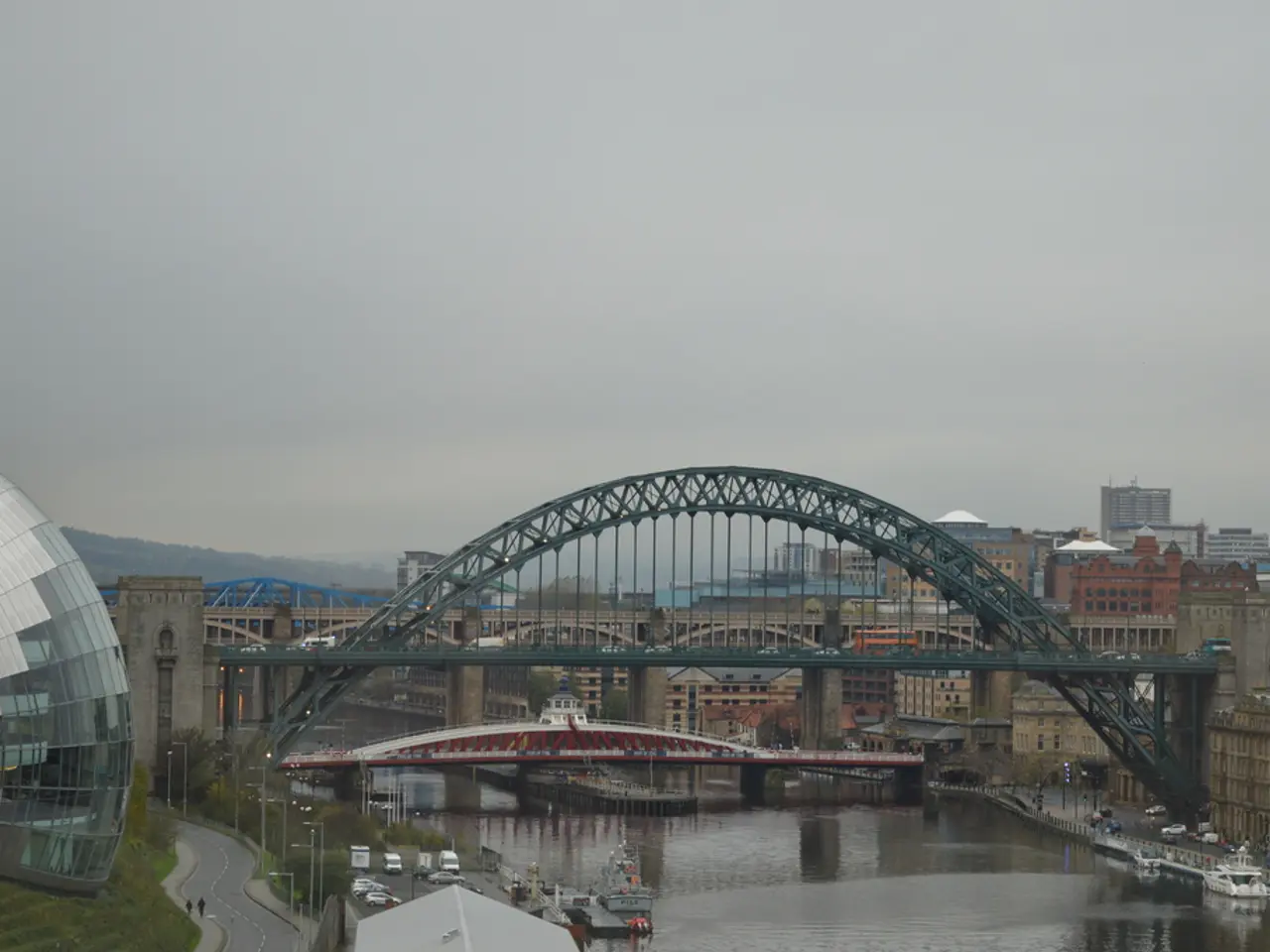Nation Transformation via Non-stop Business Operations: Ghana's 24-hour Economy Ambition
Ghana's 24-Hour Plus Programme, launched by President John Mahama in July 2025, aims to transform the West African nation's economy by expanding productivity, opportunities, and exports. The programme, which targets the creation of 1.7 million quality jobs over four years, faces significant challenges in funding and implementation, but its structure is designed to address these hurdles through private sector leadership and catalytic government support.
Funding Challenges and Approach
The programme is backed by a projected $4 billion investment, with the government committing around $300–400 million as seed capital to catalyse private sector participation. Financing for businesses under the programme will primarily come from commercial banks, development finance institutions (DFIs), and blended finance instruments, emphasising sustainability and investor confidence rather than full government funding. Government funding is described as "catalytic," intended to support bulk infrastructure and the 24-Hour Plus Authority, not to fully finance direct business operations.
Implementation Challenges and Strategy
The 24-Hour Plus Programme is a multi-sectoral initiative, targeting key sectors such as agriculture, manufacturing, and essential services. It comprises nine policy documents and thematic subprogrammes (Grow24, Make24, Build24, Show24, Connect24, Fund24, Aspire24, Go24) designed to cover comprehensive economic activities. A 24-hour readiness programme is planned to prepare over 5,000 businesses nationwide, including SMEs and large firms, to operate around the clock through training, certification, and incentives.
To foster national consultation and co-design, the government aims to involve multiple sectors, including religious, security, academic, and civic groups. Private sector leadership is central, with the government playing a facilitative role to promote enterprise-level innovation and investment rather than direct control.
Key Challenges
Mobilising sufficient private sector investment and ensuring access to commercial financing could prove difficult given Ghana’s economic context and financial market dynamics. Coordinating a national 24-hour operational culture change across diverse sectors and regions is a complex social and logistical task that may slow implementation. The success of the programme depends heavily on developing bulk infrastructure at scale with limited government seed funding and on the capabilities of the 24-Hour Plus Authority to manage and coordinate the programme.
Conclusion
While Ghana’s 24-Hour Plus Programme has a well-structured financing model that mitigates direct government spending risks by leveraging private capital, its feasibility hinges on overcoming substantial implementation challenges, particularly in financing SMEs, infrastructure development, and nationwide cultural adoption of 24-hour productivity. The 24-hour economy policy is not solely a top-down approach; it involves collaboration with labour unions, the private sector, and international development partners.
The initiative primarily targets existing key sectors such as agriculture, manufacturing, and essential services but could be expanded to other areas in the long-term. The One District One Factory (1D1F) initiative, which focuses on job creation, should be continued and expanded. Ghana already owes $3 billion to the International Monetary Fund (IMF) after defaulting on some of its existing debt. Economist Daniel Anim Amarteye expressed concerns about the feasibility of the policy due to the need for approximately $4 billion in funding.
Transparent and accountable government departments are being established to administer 24-hour economy funds, with public trust in government being a key factor in restoring faith in Ghanaian institutions. The 24-hour economy policy could create 1.7 million new jobs by the end of the decade, resulting in a 5% drop in unemployment. However, the reliance on the private sector in the 24-hour economy could result in private companies having too much leverage. Ghana's 24-Hour Plus agenda faces infrastructure challenges, particularly power supply issues.
The implementation of the 24-hour economy policy faces multiple hurdles, including funding and the private sector's willingness to invest. President John Mahama has been in office for six months and has focused on reviving Ghana's economy. Ghana's 24-hour economy is not seen as a sole game changer, but as a means to build on the gains of the previous administration. Ghana's workforce needs to shift focus from white-collar jobs to vocational and technical training to build a 24-hour economy. Smaller enterprises might be hesitant to participate in the 24-hour economy due to potential financial losses from overproduction. The 24-hour economy policy involves various industries operating in three eight-hour shifts daily, with public and private sectors working together. The goal is to shift Ghana's economy from relying solely on traditional sectors to a more diversified one.
- The government's $300–400 million seed capital for the 24-Hour Plus Programme in Ghana will be utilized to catalyze private sector participation, with commercial banks, development finance institutions, and blended finance instruments providing the primary financing for businesses under the programme.
- The 24-Hour Plus Programme extends across various sectors such as agriculture, manufacturing, and essential services, with nine policy documents and thematic subprogrammes covering comprehensive economic activities in an effort to promote a 24-hour operational culture.
- The success of Ghana's 24-Hour Plus Programme relies on overcoming substantial implementation challenges involving financing for Small and Medium Enterprises (SMEs), infrastructure development, and the national adoption of a 24-hour productivity culture, which is a complex social and logistical task that may slow implementation.




